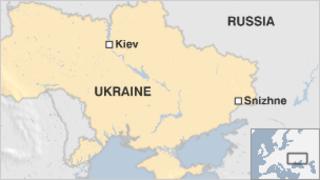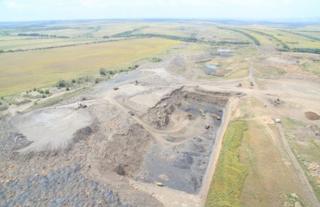The coal-mining racket threatening Ukraine's economy
From:Shandong RZ Drilling Tools Co.,ltd. 2017-04-22Hits:1254
Summary:The coal-mining racket threatening Ukraine's economy
Sometimes, they are little more than holes, in the woods outside villages or even in backyards and under houses, but Ukraine's illegal coal mines can also be huge, open-cast operations. What started as hand-to-mouth survival, 20 years ago, is now big business.
Mihailo Volynets, the wiry head of Ukraine's Independent Miners' Union, presents the situation flatly: "We know how much coal there is from the state mines and from the private mines, and we know how much coal is up for sale."
About 6.5m tonnes more coal - 10% of Ukraine's total output - is for sale than is officially mined. "There's no explanation... maybe Martians brought it," Mr Volynets jokes, without laughing.
Illegal mining in the Donbass and Luhansk regions of eastern Ukraine is there for all to see. Coal trucks routinely rumble along roads where there are no legal mines.
A brief stroll in the woods outside the town of Snizhne passes by three pits. But the money made from these mines does not make it into the nearby communities. Locals here have been agitating for a crackdown.
"It is excessively dangerous for men to work in these pits and no one benefits from this here," says Ira, whose children, like so many, have moved away.
"The whole region is just not functioning,"
For some, though, the illegal mining business is functioning fine. With no taxes to pay or workers' rights to respect, wildcat mines produce far cheaper coal than legal ones.
'Siphoning money'
Thanks to their contacts in the murky world of Ukrainian politics and business, the illegal mining bosses can sell this coal via legal mines.

In so doing, notes Oleksa Shalayskiy of the anti-corruption website "Nashi Groshi" ("Our money"), owners of illegal mines can even benefit from state subsidies, intended to cover costs that have not been incurred.
"It's just another way of siphoning taxpayers' money into private hands," he says.
In Donetsk it is widely believed that powerful people are creaming off the profits.
Mr Shalayskiy points out that Rinat Akhmetov, Ukraine's richest man and historically a staunch supporter of President Viktor Yanukovych, is seeing his legal mines lose out to the illegal competition.
Mr Akhmetov has made no public comment about this.
However, on condition of anonymity, a source close to Mr Akhmetov's mining company DTEK confirmed for the BBC that the company was deeply concerned about illegal mining. It constitutes unfair competition, and lures young miners away with better pay, albeit to worse and more dangerous conditions.

In February two publications, Kommersant Ukraine and Zerkalo Nedeli, suddenly ran stories that harshly criticised the illegal mining situation, arousing suspicion that somebody powerful had put the newspapers up to it and provided information.
Ukrainian journalists suspect that anonymous aerial shots published in Zerkalo Nedeli and elsewhere must have been provided by some legal mining companies.
Meanwhile, according to Mihailo Volynets, the economy is under a dire threat, since more than 95% of Ukraine's domestic energy resources are in the form of coal.
"If this situation continues for another two years," he says, "then dozens of state mines will have to close down. Ukraine will become dependent on imports not only of gas and oil, but of coal, too."

